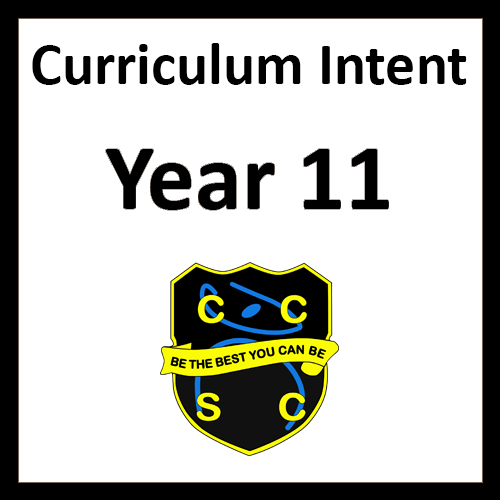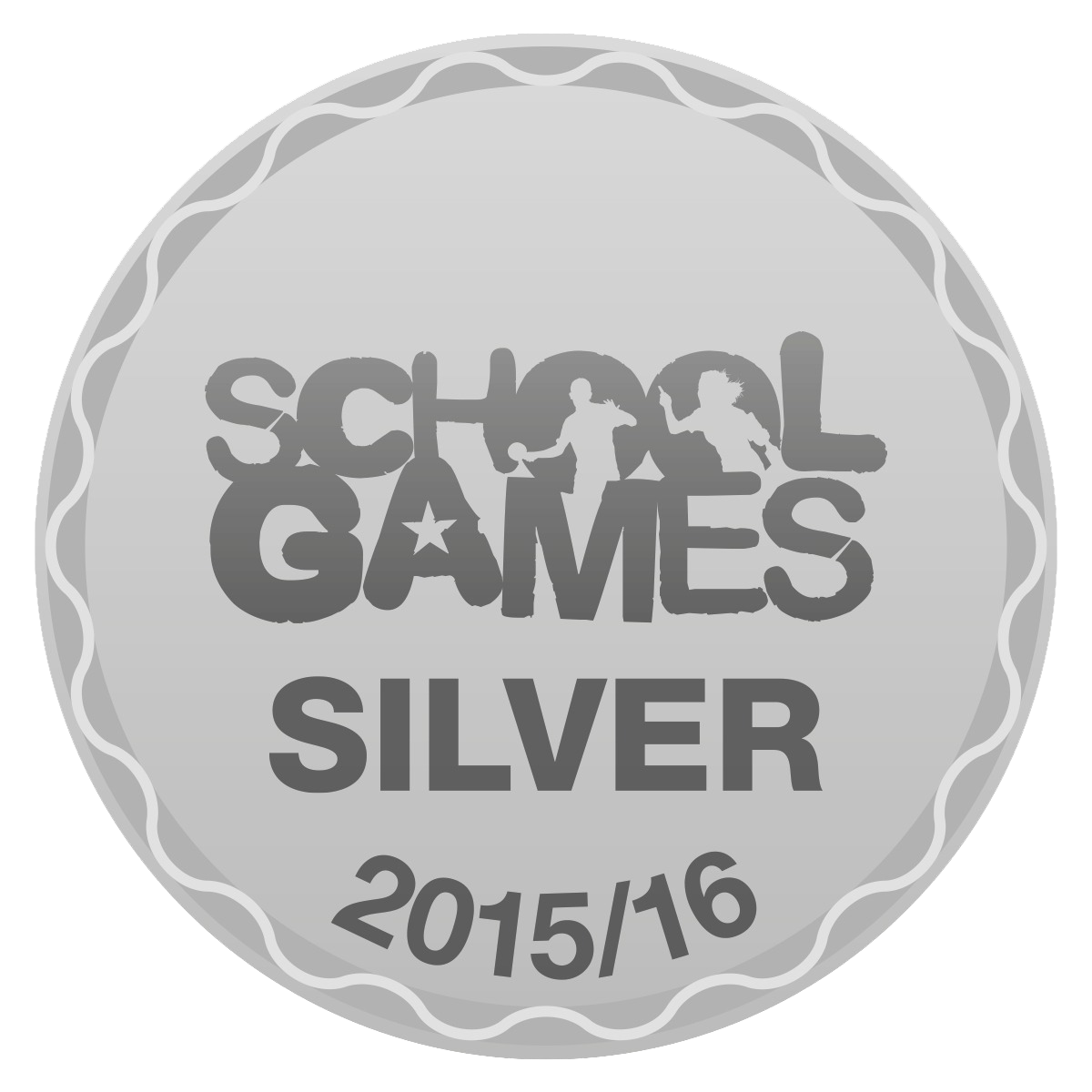Curriculum Statement – CCSC
Click the buttons to download our curriculum intent documents for each year
Curriculum Aims
At Chesterton Community Sports College, we provide all children with a broad and balanced curriculum which has knowledge-based learning as its core value. Our curriculum is based on the National Curriculum and, in addition, offers a real depth and variety beyond the requirements in both KS3 and KS4. Our curriculum supports all pupils to exceed both academically and vocationally, where achievement of potential is key.
The shortened Key Stage 3 is a huge strength of the school and allows a very broad range of subjects to be offered to our pupils. All subjects are delivered by specialists, including specialist teachers in all options subjects, as well as a very strong core. The options offer is outstanding, allowing great breadth and balance for all pupils. EBacc uptake is extremely high and we offer a good balance of vocational and academic options (four options).
All subjects at Chesterton Community Sports College are continually reviewing their curriculum with a real focus on crucial knowledge. We believe that each child’s performance in exams will improve greatly when they learn more crucial knowledge, remember more crucial knowledge, understand it and then apply it.
Crucial knowledge is the key content that has to be taught, remembered and understood by all pupils, alongside additional learning. We believe that if students learn and remember this crucial knowledge, they will be able to access more learning in school, develop their confidence and importantly, make more progress.
Over time, pupils will know more, remember more, understand it and apply it.
Our curriculum intent documents for each year group can be viewed using the buttons above. These give an overview of what pupils will learn, but there is a wealth of sequencing and crucial knowledge documents for all subjects which are constantly updated and shared with pupils in class via OneNote and Teams. Updated documents are also regularly shared with parents and carers so that pupils’ learning can be supported at home.
Overview, Principles and Interpretation
- Knowledge empowers and builds confidence
- Crucial knowledge should be agreed by ALL relevant staff
- Crucial knowledge should be constantly taught, recapped and assessed
- Assessment takes place every day, every hour and every minute - not waiting for formal termly assessment dates. This will allow opportunity to ensure crucial knowledge is fully embedded at the appropriate times
- Knowledge allows comprehension. Skills are dependent on knowledge
- Sequencing is essential and should be well thought-out and logical
- Constant recap is essential – it allows successful recall and embeds knowledge
- Knowledge is generative. It will develop confidence as pupils apply it to the correct contexts across different areas
Curriculum Documents
The curriculum at Chesterton Community Sports College is planned under the following headings in all departments.
- A) Curriculum Overview
- B) Curriculum Intent
- C) Curriculum Sequencing (including specific planned recap/recall)
- D) Crucial Knowledge Resources
These documents are continually reflected on adapted/updated where needed.
- Documents are used by staff and also shared with parents and pupils
- There is a continued focus on pupils understanding and applying their knowledge in context
- Continual assessment in all lessons using a range of assessment strategies
- Sequencing is well-developed across the curriculum and regularly evaluated to measure impact
- Pupil iPads are used as a valuable resource in and out of lessons to support crucial knowledge learning and application, as well as to support their understanding of sequencing (subject overviews)
- Regular staff and pupil reflection and evaluation of learning is supporting the learning of deep rooted and meaningful knowledge
- Pupil conversations at all levels with teachers, peers, SLT, other department specialists, non-specialists and parents are knowledge based and enable regular evaluation of the impact of teaching and learning across the curriculum
Curriculum Intent
All departments have a clear understanding of the sequence in which knowledge is taught. All subjects have clear sequences of learning with rational, well thought-out intent, which is constantly moderated and reviewed at all levels. Knowledge is at the heart of all plans, with crucial knowledge always leading the content. Recap is planned for in as much detail as possible. Our curriculum intent is to embed the learning into long term memory, where the accumulation of deep rooted and meaningful knowledge enables successful application.
Curriculum Implementation
Over time, pupils, ‘know more, remember more, understand it and apply it’. Their accumulation of deep rooted and meaningful knowledge means that they can recognise and apply this knowledge in context. During implementation, assessment is essential for successfully embedding knowledge into pupils’ long-term memory and should take place at all points in pupils’ learning. Knowledge gaps are highlighted and filled constantly, misconceptions are addressed and differentiation is key to ensure that each pupil progresses at the optimum speed.
Personal Development
At Chesterton Community Sports College, we actively encourage all of our pupils to ‘Be the Best They Can Be’ in all aspects of their lives. We provide an extensive range of extra-curricular activities and opportunities for all pupils and there is a wide range of leadership roles available to pupils across all subject areas and across the school community, such as prefects, house leaders, sports leaders, School Council and subject leaders. Pupils are also encouraged to take part in weekly extra-curricular clubs and regular trips to develop their skills and experiences, and for their own personal development.
Religious Education is studied at KS3 and delivered during form time at KS4, as well as being offered as an option subject at KS4. PSCHE is taught during form time at both key stages, with the addition of PSCHE/RSE days for each year group. This ranges from workshops with the NHS, Road Safety, talks by colleges and Universities, etc.
Through the support and guidance that we provide, it is our aim that every child leaves us with positive values and high aspirations about their future career path. We aim to provide personalised support which will allows pupils to make realistic and informed decisions on progression to Post-16 education, employment and/or training opportunities. This includes A Levels, apprenticeships, traineeships, study programmes or specialist programmes at University Technical Colleges (UTCs).
The Government’s career strategy (December, 2017) gives schools a long-term plan to build a careers system that will enable young people to make the right decisions Post-16. To achieve this aim, Chesterton Community Sports College aims to use the benchmarks from the Gatsby Charitable Foundation, which are as follows:
- A stable careers programme
- Learning from the careers and labour market information
- Addressing the needs of all students
- Linking curriculum learning to careers
- Encounters with employers and employees
- Experiences of workplaces
- Encounters with further and higher education provide
- Personal Guidance
Curriculum Impact
The impact of the curriculum will be constantly reviewed, with a focus on how well the pupils learn and apply their knowledge and curriculum content in relevant contexts. The impact of the curriculum will be reviewed on an ongoing basis and will include:
- Continual assessment of pupils’ retention of knowledge, understanding and application in all lessons using a range of assessment strategies
- All subjects have clear sequences of learning with rational, well thought-out intent, which is constantly moderated and reviewed at all levels (class teachers, departments, SLT)
- Regular staff and pupil reflection and evaluation of learning to support the learning of deep-rooted and meaningful knowledge
- Department weekly reflection documents to assess how deep-rooted the knowledge and skills are across all areas
- Weekly SLT department meetings review, measure and monitor of impact of the curriculum constantly
- Pupil conversations at all levels with teachers, peers, SLT, other department specialists and non-specialists are knowledge-based and enable regular evaluation of the impact of teaching and learning across the curriculum
Regular pupil/parent/teacher feedback allows strong progress and keeps it at the forefront of learning













